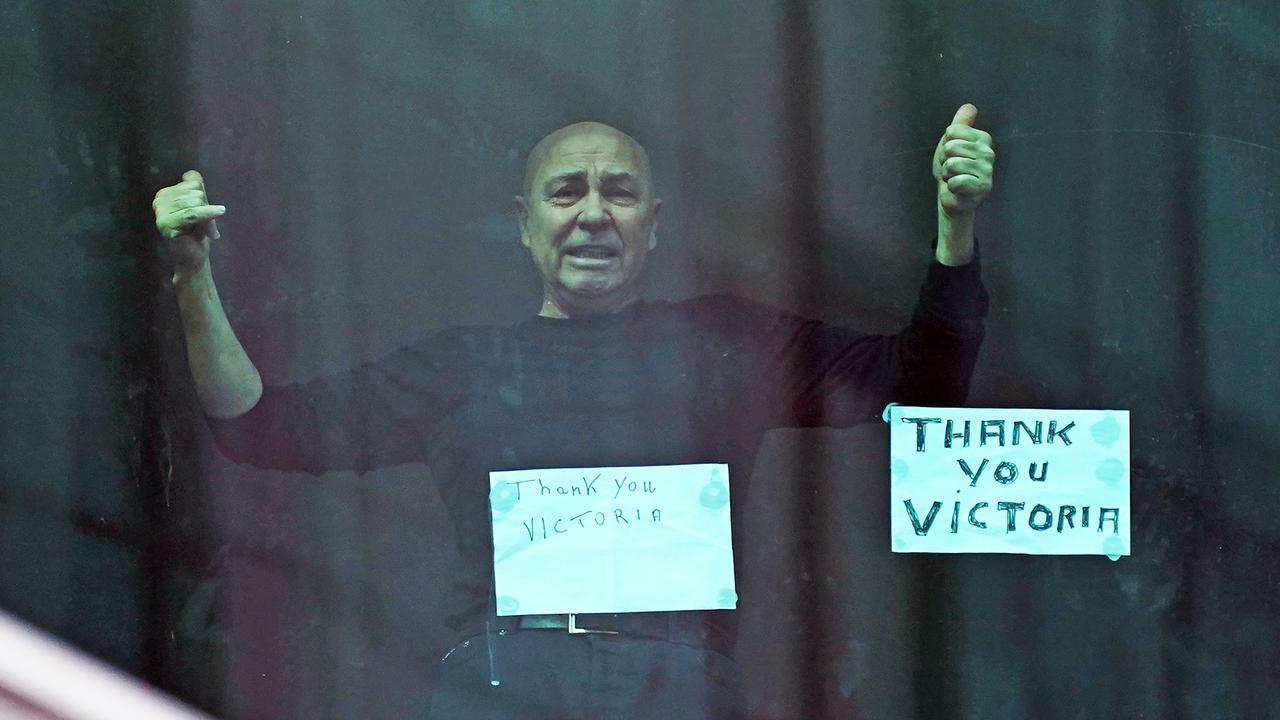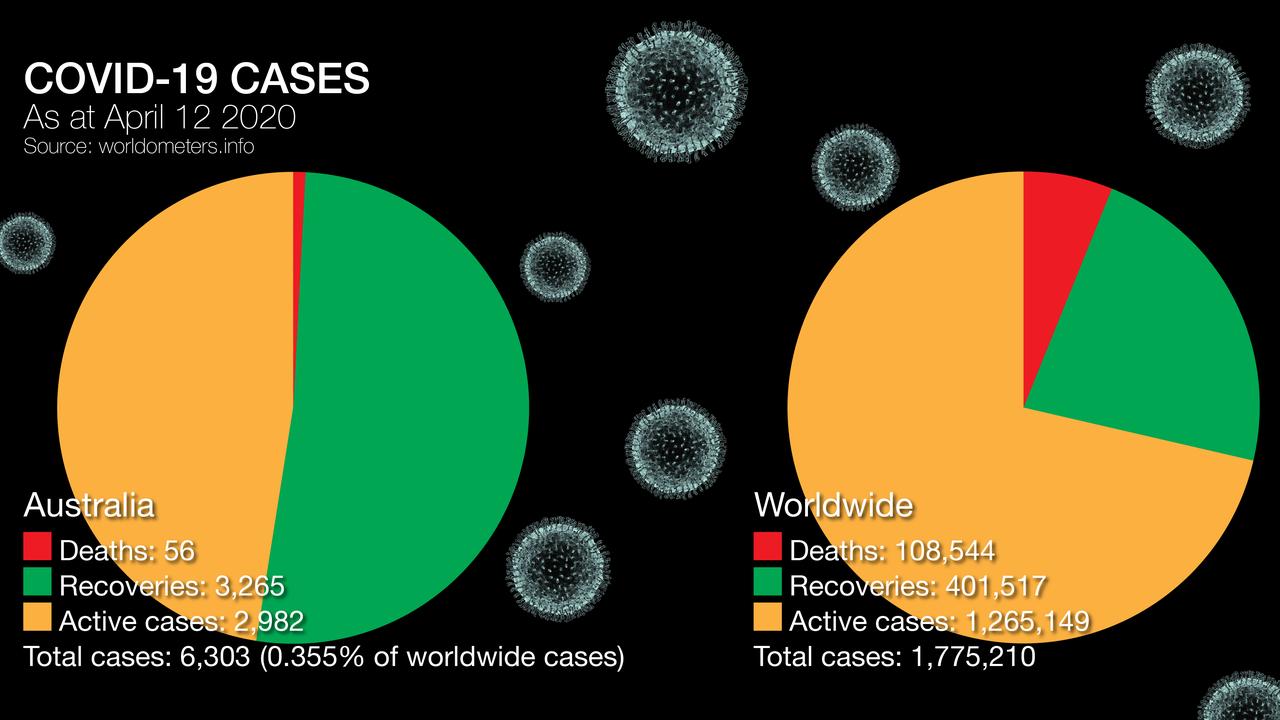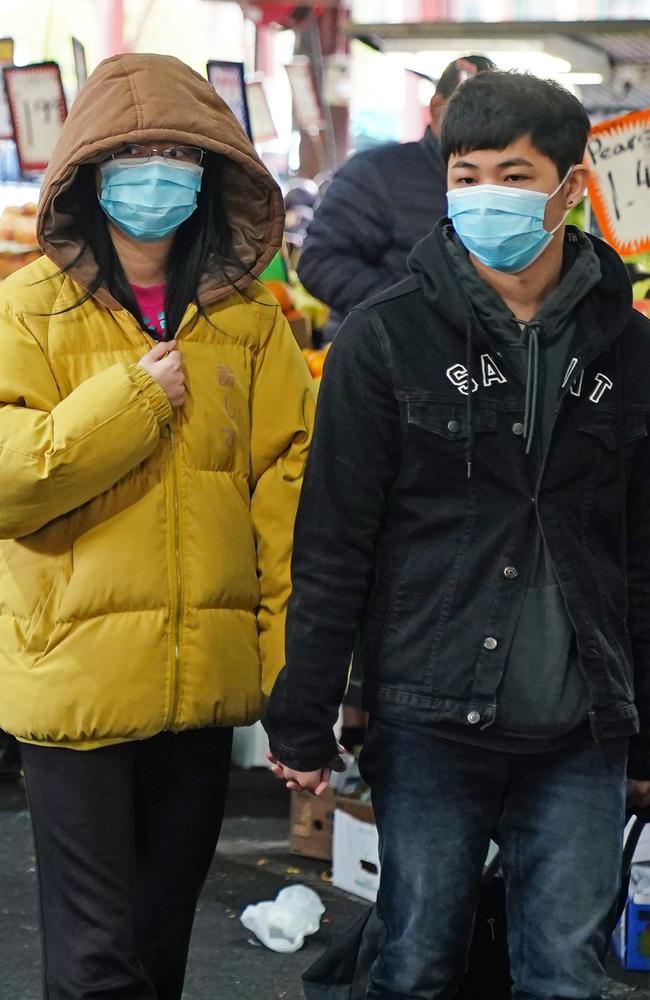Australia’s deputy chief medical officer says community transmission is under control but warns we don’t know enough about COVID-19
Australia’s deputy chief medical officer has assured Australians that community transmission is under control – but it comes with a warning.

Australia’s deputy chief medical officer has reassured Australians that community transmission of the coronavirus is relatively under in control in Australia amid fears it is more prevalent across the country than statistics indicate.
But in a stark warning, Professor Michael Kidd admitted that scientists still know very little about the disease and there is “still a lot we’re learning”, including about the risk of reinfection.
“We have to remember we’ve only been sharing our planet with this virus over the last 3-4 months so there is still a huge amount we are learning about the coronavirus and still a lot that we’re learning about how it manifests when people develop the COVID-19 infection,” he said.
“At the moment we still have cases occurring in Australia, we have less than 100 cases being picked up each day over the last few days but that still indicates that transmission is continuing and of course amongst those cases some people are getting very unwell, ending up in hospital, ending up in intensive care and tragically, small numbers of people are still dying.”
RELATED: Follow the latest on coronavirus here
RELATED: Young Australians warned they are transmitters
It comes as chief medical officer Brendan Murphy says there is still a “huge risk” in lifting restrictions, NSW Premier Gladys Berejiklian says “the worst is yet to come” and “we can’t pretend it’s over”, while Victorian Premier Daniel Andrews acknowledges “it is very frustrating that we cannot give people an end date” but says social distancing measures are saving lives.
At the time of writing, there were more than 6300 confirmed COVID-19 cases in Australia, while the death toll now stands at 59.
Last week, Prime Minister Scott Morrison said that “less than 10 per cent” of confirmed COVID-19 cases in Australia had occurred via community transmission.
Only a small number of cases had been acquired locally that wasn’t due to transmission from an already confirmed case – it’s what experts describe as “community transmission”.
But despite the chief medical officer describing Australia as being in a “position of strength” in the fight against the coronavirus over the Easter long weekend, Prof Murphy has consistently expressed concern that people in the community are still, unknowingly, transmitting the virus.
While there has been a large amount of testing done in Australia, a shortage of test kits means criteria to take a test has been limited, potentially missing high-risk groups or asymptomatic individuals.
“That is why we have to keep our pressure on and make sure that we don’t end up like countries in the world that you have all seen on the news,” he said.
He has also repeatedly stressed that preventing widespread community transmission is key to successfully combating COVID-19.
But in an interview with ABC News Radio on Sunday night, deputy CMO Michael Kidd said he believes few untested positive cases in Australia are slipping through the cracks.
“We don’t believe that we’re missing a lot of positive cases with the testing which is underway,” Prof Kidd said.
“Australia’s testing is very targeted, but it’s targeted on the areas where we know we’re most likely to be picking up cases.
“Australia has conducted 330,000 tests since the beginning of the pandemic, we picked up 6000 positive cases from those 330,000 tests so we have a very, very high number of negative tests compared to the number of positive tests coming through.”
"We've only been sharing our planet with this virus for the past 3-4 months. There's still a lot we're learning about the virus." Says DCMO Michael Kidd. "It's very early in the development of a vaccine"
— ABC NewsRadio (@ABC_NewsRadio) April 12, 2020
He eased fears that members of a particularly high-risk group could be unintentionally spreading the virus to other parts of the country.
“We do have increased testing occurring in situations where we know that there’s more likelihood that people may have contracted the coronavirus,” he said.
“That’s particularly around contacts of the people who have come into the country and we’ve seen that with the cruise ships, for example, but also around the clusters we’ve seen of infections occurring in the country.”
Professor Kidd referred to the high-profile wedding of Scott Maggs and Emma Metcalf, whose wedding saw 31 confirmed cases of the deadly virus among guests who attended the wedding at the Tumbling Waters Retreat on March 6.
“We’ve seen some very high profile events, for example the wedding, where a large number of people were infected,” he said.
“The state health authorities went out and tested large numbers of people who had been guests at the wedding and then the contacts of people who had been guests at the wedding and so forth until we believed that we picked up all people who were positive.
“What we’re attempting to do is reduce the number of people getting exposed and to drive down the number of new infections and as that happens then to look and see at what may occur in the weeks ahead with restrictions in place.”
"We don't believe we're missing a lot of cases with the testing we have underway" says DCMO @MichaelKidd5."Testing is increased in situations where people may be affected by Coronavirus,"
— ABC NewsRadio (@ABC_NewsRadio) April 12, 2020
‘THERE’S STILL A LOT WE’RE LEARNING’
However, Professor Kidd warned the world is still very much in the early phases of understanding the virus and that we still don’t fully understand how it functions and manifests.
“We have to remember we’ve only been sharing our planet with this virus over the last 3-4 months so there is still a huge amount we are learning about the coronavirus and still a lot that we’re learning about how it manifests when people develop the COVID-19 infection,” he said.
Prof Kidd also reiterated scientists were only in the early development phases of “seeing whether we actually get a vaccine”.
“It’s still very early in the development of vaccines. Fortunately some of the world’s greatest minds, including great health and medical researchers here in Australia, are really devoting their time and energy to the whole issue about whether we can develop an effective vaccine which is going to be safe and which is going to be able to be produced in very large numbers and shared not only across Australia but with populations across the world.
“It is still very early in the development phases of seeing whether we actually get a vaccine and if we do, who’s going to be able to use it and how it is going to be managed safely.”


REINFECTION A HUGE CONCERN
Community transition is just one of the government’s worries. Little is known about reinfection rates and whether those who have had the virus can pick it up again.
It’s an ominous sign for scientists, especially considering reports from South Korea on Good Friday that almost 100 patients thought to have recovered from the coronavirus had tested positive again, sparking fears that populations could become reinfected.
“This is again part of the challenge that we have in that our experience with this virus is so short and we are continuing to learn more and more about the virus,” Prof Kidd said.
“Once people have been infected and have recovered and are now asymptomatic they will be called ‘recovered’ and we have a few thousand people in Australia now who have ‘recovered’ from COVID-19 and what we hope is that these people will now no longer be at risk of further infection.
“We hope that these people will no longer be shedding the virus and at risk of causing other people to be infected but as I say we are still very early in our understanding of this virus so some of these assumptions may prove not to be the case and that’s why so much research is being carried out in Australia and throughout the world.”
"Even though people may have had the virus, those people will still need to be doing the same ...physical distancing, hand hygiene, etc." says Deputy Chief Medical Officer Michael Kidd.
— ABC NewsRadio (@ABC_NewsRadio) April 12, 2020
The Korea Centers for Disease Control and Prevention announced that 91 people who had previously been cleared of the virus had tested positive again. The KCDC had said the number had risen from 51 cases reported earlier in the week.
Professor Kidd said “whether this means that they are infectious or whether this is just part of having some traces of the virus is not clinically significant, we just don’t know.
“What it means is that even though people may have had the virus, those people will still need at the moment to do the same things that every one else is doing, with regard to physical distancing, hand hygiene, making sure you’re not at risk of transmitting any thing to any one else.”
SHOULD I WEAR A MASK?
The debate over whether or not every Australian should be donning a face mask when they leave the house continues.
TV medico Dr Zac Turner has rejected Australia’s deputy chief medical officer’s advice, saying face masks should be mandatory for all people if they visit enclosed public spaces – especially supermarkets.
But in the ABC interview, Professor Kidd expressly stated: “At the moment in Australia we have low community transmission of the coronavirus, there is no recommendation at the moment for people wearing masks when they go out in public, for example people going to see their GP or going to the pharmacy or going shopping.
“I accept it can be confusing because if we look at countries, particularly countries where there is high prevalence in the community of a lot of local transmission occurring and you see lots of people wearing masks, but that’s not necessarily in Australia at this time.
"Masks are mainly to protect the environment from the wearer" says Deputy Chief Medical Officer @MichaelKidd5 "We've had shortages of masks, especially masks used in healthcare settings."
— ABC NewsRadio (@ABC_NewsRadio) April 12, 2020
Prof Kidd reiterated Australia’s “very serious” concerns over the shortage of masks and said, “you have to remember that masks are mainly to protect the environment from the wearer.
“The other challenge with wearing masks is wearing them appropriately and what we’ve seen in other parts of the world is people using masks and they put their hands on the mask and then they scratch their eyes which is a terrible thing to do because if someone has coughed on your mask and then you scratch your eye you could actually be infecting yourself, which is not a good thing.”

— Share your story: youngma@news.com.au




